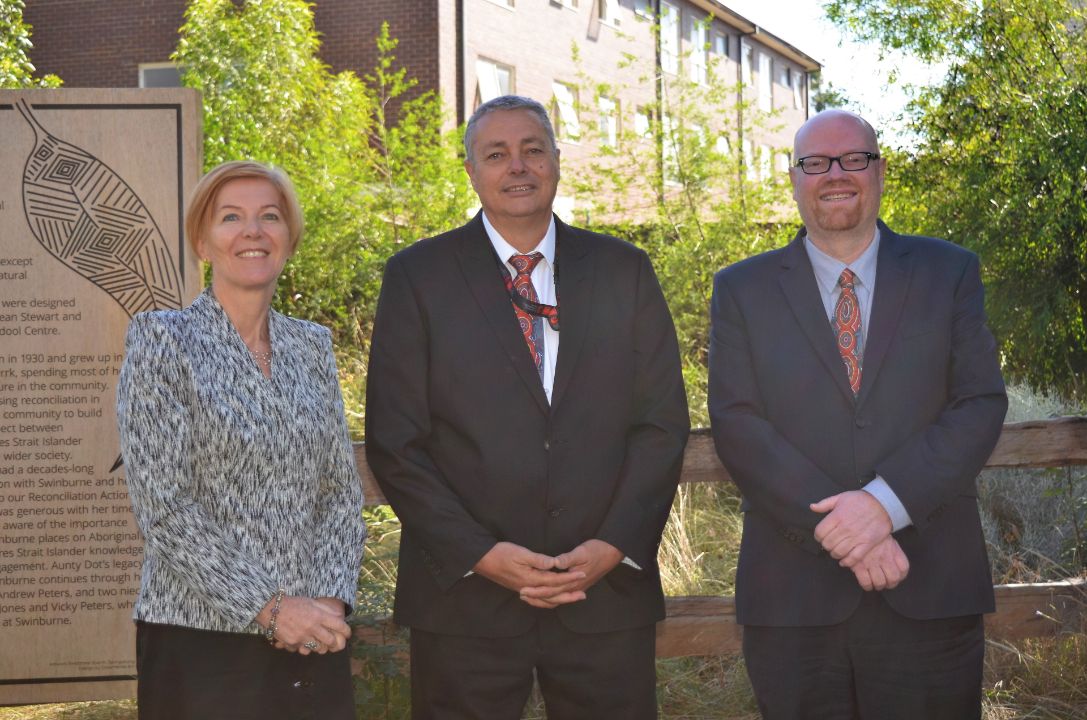Swinburne hosts GSC’s first Indigenous engagement
Swinburne University of Technology’s first professional vice-chancellor, Indigenous engagement, ensures the university maintains its leadership position in Indigenous education, employment and research, and seeks to expand partnerships and engagement with Indigenous and non-Indigenous organizations.
Speaking at an official welcome, Professor John Evans said he looked forward to using his newly created role at Swinburne to further integrate self-determination, Aboriginal and Torres Strait Islander knowledge and the cultural safety throughout the university.
“Universities are one of the last organizations that still have an influence on social good as part of their core mission,” Professor Evans said.
“I am delighted to be part of a university that takes this mission of building a better world seriously, using people and technology to improve the lives of Indigenous Australians.
“I look forward to implementing transformative activities that improve the lives of Indigenous Australians,” he said.
Vice-Chancellor and Chair of Swinburne, Professor Pascale Quester, said Swinburne was proud of the achievements in Indigenous engagement over the past six years and looked forward to the next chapter led by Professor Evans.
“We have achieved fantastic growth in Aboriginal and Torres Strait Islander student numbers, student support, teaching and research, thanks to the hard work of the Moondani Toombadool Center team,” said Professor Quest.
“We know there is still a lot of work to do and we are delighted that Professor Evans will join us as part of the Swinburne team to continue to drive forward this leading work in Aboriginal engagement and Torres Strait Islanders.
Building on the success of Indigenous engagement
Professor Evans will lead all Indigenous issues at Swinburne, continuing the important work spearheaded by Professor Andrew Gunstone, Executive Director (Reconciliation Strategy and Leadership).
Professor Evans’ new portfolio includes the Moondani Toombadool Centre, as well as overseeing several Indigenous strategies, including Indigenous Teaching and Learning Strategy, Indigenous Research Strategy, Indigenous Workforce Strategy and Moondani Toombadool Centre’s Aboriginal Student Recruitment and Retention Strategy.
Professor Evans will work closely with Professor Gunstone, who will remain responsible for Reconciliation and the Reconciliation Action Plan, as well as the new National Center for Reconciliation Practice.
Some of the successful initiatives over the past six years have been:
- Creation and development of the Moondani Toombadool Centre, including the appointment of leaders Vicky Peters, Dr Sadie Heckenberg, Emma Gavin and Dr Mat Jakobi.
- Creation of the Indigenous Research Fellowship program and appointment of Aboriginal and Torres Strait Islander researchers, Dr. Justin Trounson, Associate Professor Emma Lee, Dr. Sadie Heckenberg and Dr. Wendy Hermeston.
- Increase Indigenous self-determination at the university, including creating the Swinburne Indigenous Governance Committee and advocating for a pro Vice-Chancellor, Indigenous Engagement.
- Integrate Indigenous knowledge across the university and establish Indigenous places on all three campuses, including the Flower Meadows Aunty Dot Peters AM.
- To increase the number of Aboriginal and Torres Strait Islander students in higher and vocational education studying at Swinburne from 81 in 2014 to 1,048 in 2022.
“It has been an absolute privilege to lead Aboriginal affairs in Swinburne. I thank all of my amazing Indigenous colleagues that I work with and learn from, and who are doing amazing decolonization and indigenization work,” said Professor Gunstone.
“I am delighted to welcome Professor Evans to Swinburne. We are already working closely together to produce key academic and national results in Indigenous and reconciliation spaces.


Comments are closed.